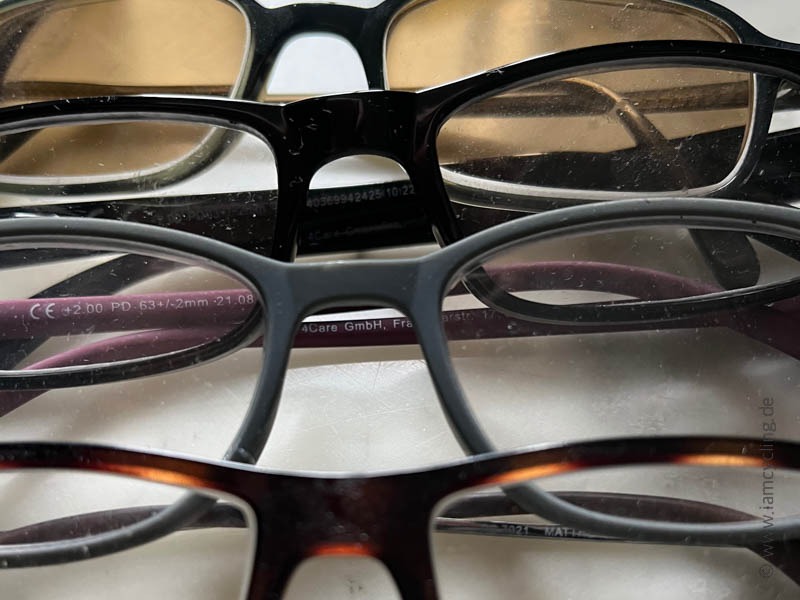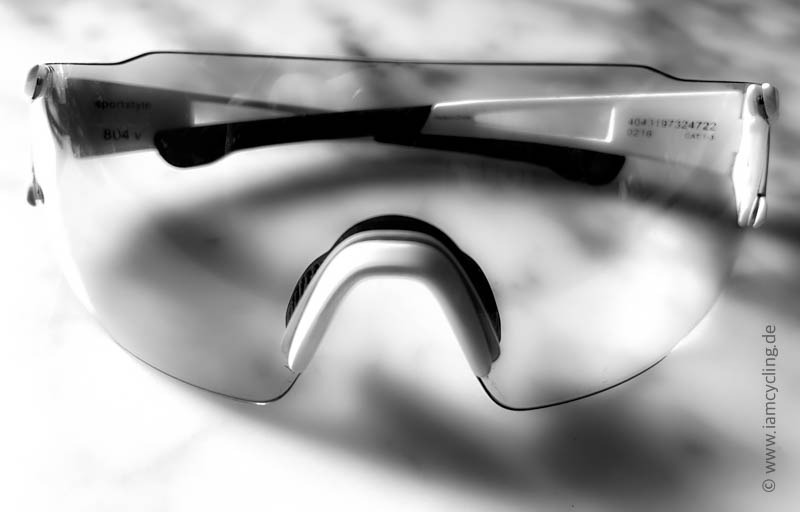This post is also available in: Deutsch (German)
What on earth is “refractive lens exchange”? It is a way to get rid of presbyopia. This is a real annoying issue. Not only when riding a bike. I’ve been nearsighted since I was ten years old. It has never really bothered me. But presbyopia is annoying and affecting life due to restricting abilities.
In an earlier article (available only in German) I had already presented one of many ideas to deal with it. Also in the magazine Roadbike compared various “visual aids” possible for cycling in its issue 08/2022. A total of seven different options were presented. In my opinion, six of them are crap. But one might actually solve the problem: Implanting multifocal lenses, the “refractive lens exchange”.

Corsica
On the road bike trip to Corsica I was once again confronted with the idea. But it has never been so directly. One participant had had the lenses implanted and reported on his experiences with the surgery. He told us in detail and honestly how the procedure was. We got a good first-hand insight. However, I didn’t really think it could be an option for me yet. I considered the risks to be too high for me to go for it.
However, in the last few days I had some time to take a closer look at the topic of “refractive lens exchange”.
What is it actually about?
Refractive lens exchange replaces the natural lens of the eye with an artificial lens. This sounds extreme at first. However, it is a common routine procedure that is performed about one million times a year in Germany (source: Focus). The procedure is similar to cataract surgery. More details about the different options can be found in the same Focus article. I found a good description of multifocal lenses at the Augenlaserklinik Lohr (in German). Advantages of the femtosecond laser are described at EuroEyes (in German).
The risks
The risks are much smaller than I had assumed. For example, the risk of blindness is only theoretical. According to Focus, real side effects are in the per mille range. The success rate also seems to be incredibly high.
The opportunities
On the other hand, the opportunities and chances are immense. The defective vision remains permanently corrected. Until the end of your life. Glasses are no longer an issue. Either grounded in, clipped in, or inserted. All no longer necessary. It seems almost too good to be true.
What I found on the net
One advantage of refractive lens exchange is that the artificial lens can be exchanged (source: t-online).
“The femtosecond laser is the latest technology to create a corneal flap and offers a higher level of safety. Incision errors, as known from the mechanical microkeratome, are extremely unlikely.” (source: Ärzteblatt)
“The replacement of the human lens with an artificial lens can also be evaluated as an effective, safe, predictable and stable procedure for the correction of higher ametropias and, through the use of multifocal lenses, for presbyopia. Predictability is ± 0.5 dpt in more than 80 percent of the indication range.” (source: Ärzteblatt)
“Complications
Despite the immense success of modern refractive surgery, every refractive surgery procedure also poses a risk of possible complications. However, by adhering to the indication criteria, the high technical standard of each procedure, sterile surgical conditions, and the growing experience of the surgeon, these can be reduced to a minimum and, overall, amount to less than 0.5 percent.” (source: Ärzteblatt)
“Today, with modern lasers, the predictability of LASIK and the surface treatments in the indication area is ± 0.5 dpt in 85 percent and ± 1.0 dpt in 99 percent.” (source: Ärzteblatt)
Cataract
The procedure is similar to the cataract surgery. If one assumes that the cataract will come, the operation is performed practically in advance. The positive consequences can also be credited at the same time: Longer life expectancy, avoidance of falls, smaller risk for dementia and depression (source: NDR). Whereby the same article writes that the operation is not an alternative to varifocals. The reason given is that a surgery on a healthy eye is always a risk. But why wait until the cataract comes and not take precautions when it is even easier?
Yes or No?
The subject has to settle down a bit. After the initial euphoria, I was sure that I would do it right away. After the research I became a little uncertain again. I don’t really know why. I would like to get rid of the problems with my vision. If I don’t get cold feet. And if no medically implied contradiction can be found.
Who has made own experiences? Who can contribute something to the topic that will help me and others? The forum is open. I would be very pleased about your input.










